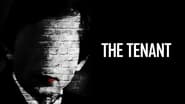LittleLotti
I wanted to love The Tenant. I truly did. It's one of those films you hear about whenever classic horror films are being discussed. But I feel like I watched a different movie than everyone else.The first half of the movie is very slow and somewhat boring, which would be worth it if the second half paid off. At first, it seems like it will. When the movie hit the halfway point it started getting exciting. It was like, "Yes! This is what I've been waiting for!" I mean, you have teeth in the wall, a head being tossed around like a football, creepy tenants standing completely motionless in the window across from Trelkovsky's apartment. Trelkovsky begins acting strange and unlike himself. Polanski' acting became better (although I feel someone else could've been a better fit for the role). And then I don't know what happened. The rest of the ending fizzles out and you're left with a detachment from the character's situation. Suddenly it all becomes so absurd. I can appreciate the paranoia of our MC, even if it's all in his head, but in my opinion it was executed so poorly. The sound editing was not very good either. At times sound effects were so ear-piercing I had to lower the volume, yet other times the voices were so low or spoken strangely that I had to turn on subtitles just to know what was being said. The dubbing is so distracting in this movie. Just like in Suspiria, the dubbing is awful and it creates a disconnect from the story. Suddenly you're pulled back to reality; these are just actors, badly delivering their lines while another voice is not matching AT ALL. I will never understand this style of filmmaking. It comes across as lazy.I went into this movie thinking it was a psychological horror film, but On IMDb it is tagged as a black comedy. Was this a black comedy when it was released? Or do people think it's a black comedy because of how poorly it's done? Who knows.I honestly believe that if this had been a film by anyone other than Polanski it would not be considered such a masterpiece. I think this is one of his worst films.
katiebendeliani
Roman Polanski's masterpiece – The Tenant succeeds to reach our hearts and makes us give further thought about multiple issues brought up in the movie. Simple in style, it is very dynamic. After watching the movie my first thought was that I did not care about the mystery that lies beneath it. I did not care about the plot twist in the end of the movie. I think this movie is important even without that mystery. The sense of loneliness, lack of communication, feeling of being driven by the society and a lot of other aspects makes this movie very valuable.Even though it was shot in 1976, I think it is even more important in our era. The most important issue for me in this movie was the desire of all people in our lives to modify our behavior in accordance to their preferences. This egoistic attitude was most expressly demonstrated by Trelkovsky's obnoxious neighbors, who did not respect his private life and requested absolute obedience from him. But neighbors were not the only ones who did it. The same was done by Trelkovsky's friends. They mocked and criticized him for being weak and with this attitude made it even worse for him to cope with the difficulty of the situation. More than that, this modification gradually transformed into destruction of personality. I loved the scene from Trelkovsky's friend's flat, where he demonstrates his supremacy to Trelkovsky when he clearly insults his neighbor who asked him to make the music low because his wife was ill. The friend tells Trelkovsky that he does not give a damn for his neighbors' situations and thus gives him advice to do the same thing. So where is the margin that lies between our private lives and infringement of other people's private lives by protecting our own. What hurt me the most about the movie was that Trelkovsky tried so hard to be civil, tried to adjust to his neighbors' wishes and desires, did not want to engage in any conflict, but he was continually insulted. As if all people around him understood he was feeble and civilized and used this against him. Instead of opposing those who relentlessly insulted him, Trelkovsky hits the child who had nothing to do with it and finally goes mad. Watching all this happening was very hard. And there are so many other issues you can go on and on about. 10 of 10. The movie is terrific.
michaeltrivedi
Now I don't know where to begin on this movie. All the reviews were exceptional, except Roger Ebert's. When I started watching this movie, I was literally entranced. Nothing could take my eyes off the screen, and I wanted to know what would happen to our main character, what this particular portion of his life would tell me. What portion of his life are we given the chance to see, and what morals and understanding of the human condition will I gain. The Tenant is a great movie. The ending caught me by surprise, and I was a little disappointed. But I would definitely recommend this picture of for a late night viewing.8 STARS!! Though it probably deserves more.
Mr_Ectoplasma
"The Tenant" focuses on Trelkovsky, a young European who moves into a crumbling apartment building in Paris where the former tenant, an Egyptologist, committed suicide by leaping out of the window and through a pane of glass. Trelkovsky finds himself pestered by the other tenants, as well as both his landlord and the concierge (Melvyn Douglas; Shelley Winters), but most bothersome is the inexplicable occurrences in the building—items disappearing in a matter of seconds; his neighbors standing motionless in the windows of the communal bath house for hours on end; and moreover, the subtle and bizarre changes to his personality.Decried by many critics upon its release but heralded as a cult film and final installment in Roman Polanski's "Apartment Trilogy," "The Tenant" is one of the weirder offerings from the auteur. One major difference is that Polanski stars and directs, which allows him a double-edge that the previous films of the trilogy ("Rosemary's Baby," "Repulsion") did not allow.As with the former two films, "The Tenant" is a slow and cerebral offering that ramps up the nightmarish qualities almost to the point that they border on surrealism, though it never quite reaches that extreme. The almost-surrealism of the film is unexpectedly unnerving and, though not nearly as claustrophobic as its precedents, the film is considerably more bizarre. The dynamics of the characters are odd from the get-go: the disaffected landlord listens to Trelkovsky practically beg for the near-derelict apartment. The same day, Trelkovsky discovers the story of Simone, the former tenant who attempted suicide in the apartment. He goes to visit her in the hospital, where he meets her eccentric friend (Isabelle Adjani); Simone dies in front of them, though the extent to which this registers with them (particularly Trelkovsky) is vague. After they leave the hospital, the two go see a Bruce Lee movie at the cinema. Many have remarked the Kafkaesque qualities of the film, and it's a valid observation. There is a distinct meeting of the arbitrary with the absurd, an element that seems to be embedded within "The Tenant," and the visual components that carry it along are striking and at times downright chilling. Polanski is memorable in the lead role, while Melvyn Douglas and Shelley Winters have unexpected turns as the disaffected owner/cold concierge of the apartment building. Adjani's character is wacky and more or less peripheral, but her scenes are great.The film's conclusion is fittingly ambiguous and frankly expected given how deep Polanski whisks his audience down the rabbit hole with the film. It is perhaps as frustrating as it is thought-provoking, and is far more equivocal than "Repulsion" or "Rosemary's Baby," both of which left more perceivable breadcrumbs. More than anything, though, the visual qualities of the film are what I found to be most striking (and most terrifying). It is, on multiple occasions, the film equivalent of a portrait of a nightmare, and for that, it is a true gem. 9/10.









